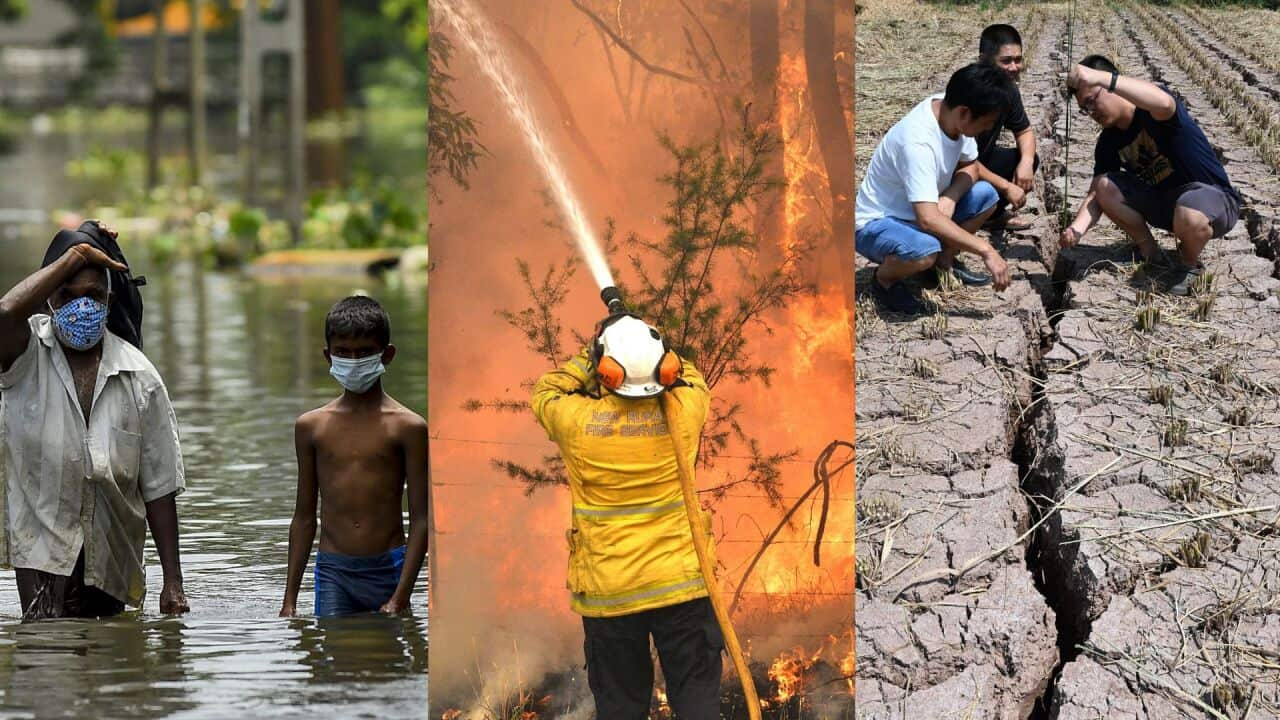Key Points
- The federal government has secured the crossbench vote it needs for its climate change bill to pass the Senate
- Independent senator David Pocock says he's agreed to support the legislation in exchange for some amendments
The federal government has secured the key crossbench vote it needs for its to pass the upper house.
Independent senator David Pocock said on Tuesday he had agreed to support the legislation in exchange for a number of amendments.
The government's bill will enshrine emissions reduction targets of 43 per cent below 2005 levels by 2030 and net-zero by 2050.
The bill, which the Senate could vote on this week, needs the support of all 12 Greens senators and one crossbencher to become law.
"The amendments ... I believe are sensible and add to the transparency and accountability of the bill," Senator Pocock said.
"It will be something that is a starting point for Australia. Moving forward, there's clearly a lot more work to be done."
Senator Pocock said he wouldn't "stand in the way" of legislating climate targets.
"Australians have been so frustrated and frankly quite embarrassed about the way that Australia has been shirking its responsibility on climate action," he said.
Climate Change Minister Chris Bowen indicated the government would support any "sensible" amendments Senator Pocock moves, including specifics about what is included in the annual report to parliament regarding climate risks and tighter rules around Climate Change Authority advice.
"He's had a range of constructive suggestions. We don't agree about everything, there'll be a couple of things he'll move we won't support, but we are more than happy to support his very constructive suggestions," the minister told Sky News.
But that won't include reclassifying native forest wood waste as not renewable energy, despite a Labor-led Senate committee recommending the government considers such a change.
Mr Bowen admitted there were concerns about forest waste being labelled a renewable energy source, but said the government would explore the issue carefully.
But the climate change minister told parliament the bill would provide the certainty and stability to grow the industry following the government's signature jobs and skills summit.
"It will send a message that Australia is open for business when it comes to investment in renewable energy, transmission and storage," he said.
"(It) will create thousands of jobs across our country."
The government's climate change bill was brought before the Senate on Tuesday, where the Greens are pushing the government to go further and the opposition remain opposed to enshrining the target in law.
Greens senator Larissa Waters branded the bill as "weak" but called it a small step in the right direction.
"The only thing standing in the way of more action is this government and their cosy relationship with the fossil fuels sector," she said.
"We'll now look to putting further limits on coal and gas pollution and we'll be pushing for the government's reform of the safeguard mechanism to include new coal and gas (projects)."
The party also called on the government to sign up to US President Joe Biden's global pledge to limit global methane emissions by 30 per cent from 2020 levels before the end of the decade.
Liberal senator and moderate Andrew Bragg expressed his support of further emissions reductions but told the Senate the legislation was moot considering Mr Bowen said it's not necessary for the government to enact its agenda.
"Personally, I'm relaxed about going higher if there was the work done to show how (to achieve the cuts), and how much it would cost," he said.
"The cost of transition to getting to net-zero is eye-watering."
Senator Bragg said his party would bring a higher emissions reductions target to the next election, flagging it being "well north of 35 per cent and maybe north of 40 per cent".
After accusing the coalition of filibustering debate to prevent the climate bill coming to the floor on Monday night, a Labor motion branded the climate bill as "urgent", making it easier for the government to deal with future delays.




